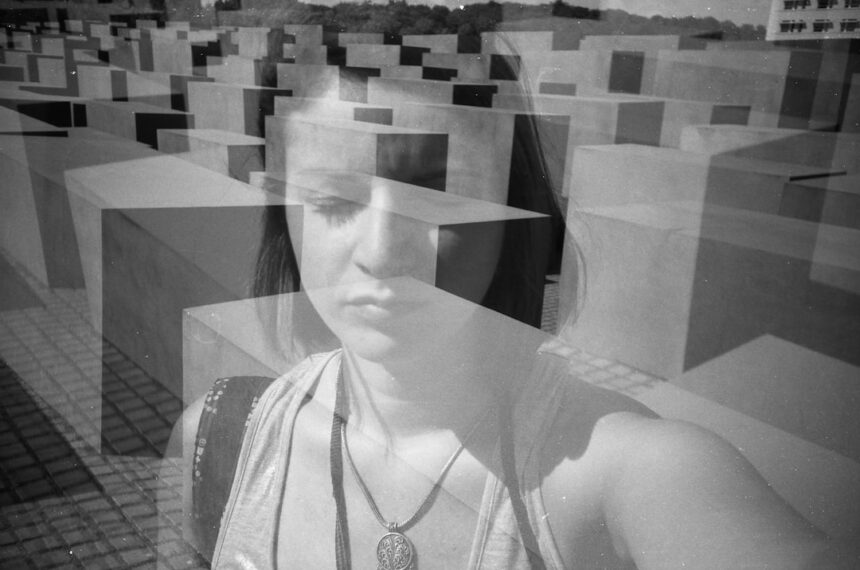Depersonalization-Derealization Disorder (DPD) is a complex psychological condition that can leave you feeling detached from your own thoughts, feelings, and sense of self. The term “depersonalization” refers to the sensation of being an outside observer of your own life, as if you are watching yourself in a movie. On the other hand, “derealization” involves a sense of disconnection from your surroundings, making the world feel unreal or distorted.
This disorder can be disorienting and frightening, often leading to significant distress and impairment in daily functioning. Understanding DPD is crucial for recognizing its impact on your life. It is not merely a fleeting feeling of being disconnected; rather, it is a persistent state that can affect your emotional well-being and relationships.
Many individuals with DPD report feeling as though they are living in a dream or that their experiences lack depth and authenticity. This can lead to confusion and anxiety, as you may struggle to reconcile these feelings with your reality. The experience of DPD can be isolating, making it essential to seek understanding and support.
Key Takeaways
- DPD stands for Depersonalization Derealization Abbreviation, which refers to a mental health condition characterized by feeling detached from oneself and the surrounding environment.
- Symptoms of DPD include feeling like an outside observer of one’s thoughts, emotions, and body, as well as experiencing a sense of unreality or detachment from the environment.
- Causes of DPD may include trauma, stress, anxiety, depression, substance abuse, or other mental health conditions.
- Diagnosing DPD involves a thorough evaluation of symptoms, medical history, and ruling out other potential causes through physical and psychological assessments.
- Treatment options for DPD may include therapy, medication, mindfulness practices, and lifestyle changes to address underlying mental health issues and improve coping mechanisms.
Symptoms of DPD: Depersonalization Derealization Abbreviation
The symptoms of DPD can vary widely from person to person, but they generally fall into two main categories: depersonalization and derealization. When you experience depersonalization, you might feel as though you are detached from your body or that your thoughts are not your own. You may find yourself questioning your identity or feeling as if you are observing yourself from a distance.
This can lead to a profound sense of confusion and anxiety, as you grapple with the reality of your existence. Derealization symptoms, on the other hand, manifest as a disconnection from your environment. You may perceive the world around you as foggy, distorted, or unreal.
Familiar places may seem strange or unfamiliar, and you might struggle to connect emotionally with people or situations. These symptoms can be distressing and may lead to feelings of isolation or loneliness. It’s important to recognize that these experiences are not uncommon among those with DPD, and acknowledging them is the first step toward understanding and managing the disorder.
Causes of DPD: Depersonalization Derealization Abbreviation

The exact causes of DPD remain somewhat elusive, but several factors may contribute to its development. One significant factor is trauma. Many individuals with DPD report experiencing traumatic events, such as abuse, accidents, or significant loss.
In these cases, depersonalization and derealization may serve as coping mechanisms, allowing you to distance yourself from overwhelming emotions or memories associated with the trauma. This dissociative response can become ingrained over time, leading to the development of DPD. Additionally, stress and anxiety can play a crucial role in triggering episodes of depersonalization and derealization.
High levels of stress can overwhelm your mind and body, leading to feelings of disconnection as a way to cope with the pressure. Furthermore, certain mental health conditions, such as anxiety disorders or depression, may increase the likelihood of experiencing DPD symptoms. Understanding these potential causes can help you identify triggers in your own life and seek appropriate support.
Diagnosing DPD: Depersonalization Derealization Abbreviation
| Metrics | Values |
|---|---|
| Prevalence of DPD | 1-2% of the population |
| Age of onset | Usually in adolescence or early adulthood |
| Duration of symptoms | Can be chronic or episodic |
| Common symptoms | Feelings of detachment, altered perception of self or surroundings |
| Associated conditions | Anxiety disorders, depression, trauma-related disorders |
Diagnosing DPD typically involves a comprehensive evaluation by a mental health professional.
During the diagnostic process, the clinician will likely conduct interviews and assessments to gather information about your symptoms, medical history, and any potential contributing factors.
To meet the criteria for a diagnosis of DPD, your symptoms must be persistent and cause significant distress or impairment in your daily life. The clinician will also rule out other mental health conditions that may present similar symptoms, such as anxiety disorders or post-traumatic stress disorder (PTSD). A thorough evaluation is crucial for developing an effective treatment plan tailored to your specific needs.
Treatment Options for DPD: Depersonalization Derealization Abbreviation
When it comes to treating DPD, a multifaceted approach is often most effective. Psychotherapy is one of the primary treatment options for individuals with this disorder. Cognitive-behavioral therapy (CBT) has shown promise in helping you understand and reframe negative thought patterns associated with depersonalization and derealization.
Through therapy, you can learn coping strategies to manage symptoms and gradually reconnect with your sense of self. In some cases, medication may also be considered as part of your treatment plan. While there are no specific medications approved solely for DPD, certain antidepressants or anti-anxiety medications may help alleviate symptoms associated with anxiety or depression that often accompany the disorder.
It’s essential to work closely with your healthcare provider to determine the best course of action for your unique situation.
Coping Strategies for DPD: Depersonalization Derealization Abbreviation

Coping with DPD can be challenging, but there are several strategies you can employ to help manage your symptoms effectively. Mindfulness practices can be particularly beneficial in grounding yourself in the present moment. Engaging in mindfulness meditation or deep-breathing exercises can help you reconnect with your body and surroundings, reducing feelings of detachment.
Another effective coping strategy is journaling. Writing about your experiences can provide an outlet for processing emotions and thoughts related to DPD. By documenting your feelings and triggers, you may gain insight into patterns that contribute to your symptoms.
Additionally, establishing a routine that includes regular physical activity and social interaction can help combat feelings of isolation and promote overall well-being.
Living with DPD: Depersonalization Derealization Abbreviation
Living with DPD can be an ongoing journey filled with ups and downs. It’s essential to recognize that while the disorder may present challenges, it does not define who you are as a person. Embracing self-compassion and understanding that many individuals experience similar feelings can help alleviate some of the stigma associated with DPD.
Building a support network is crucial for navigating life with DPD. Surrounding yourself with understanding friends and family members who can provide emotional support can make a significant difference in your overall well-being. Additionally, connecting with support groups or online communities where individuals share their experiences can foster a sense of belonging and reduce feelings of isolation.
Seeking Support for DPD: Depersonalization Derealization Abbreviation
If you find yourself struggling with symptoms of DPD, seeking professional support is vital for your mental health journey. A qualified therapist or counselor can provide guidance tailored to your specific needs and help you develop effective coping strategies. Don’t hesitate to reach out for help; taking that first step toward seeking support can be transformative.
In addition to professional help, consider exploring resources such as books, podcasts, or online forums dedicated to understanding DPD. Educating yourself about the disorder can empower you to take an active role in managing your symptoms and advocating for your mental health needs. Remember that you are not alone in this journey; many individuals have successfully navigated their experiences with DPD and found ways to lead fulfilling lives despite its challenges.
Depersonalization-derealization disorder (DPDR) is a complex mental health condition characterized by persistent feelings of detachment from one’s body or surroundings. Individuals experiencing DPDR often describe a sensation of observing themselves from outside their body or feeling as though the world around them is unreal. For those seeking more information on this condition, an insightful article can be found on Unplugged Psychology’s website. This article delves into the nuances of DPDR, offering a comprehensive overview of its symptoms, potential causes, and treatment options. To explore this resource further, you can visit the article by clicking on this link.
LEARN MORE About Depersonalization & Derealization
FAQs
What is depersonalization-derealization abbreviation?
Depersonalization-derealization abbreviation is often referred to as DPDR, which stands for Depersonalization-Derealization Disorder. It is a mental health condition characterized by feeling detached from oneself (depersonalization) and feeling detached from the surrounding environment (derealization).
What are the symptoms of depersonalization-derealization disorder?
Symptoms of depersonalization-derealization disorder may include feeling like an outside observer of one’s thoughts, feelings, and body (depersonalization), feeling like the world is unreal or distorted (derealization), emotional numbness, and difficulty connecting with one’s own emotions.
What causes depersonalization-derealization disorder?
The exact cause of depersonalization-derealization disorder is not fully understood, but it is believed to be related to a combination of biological, psychological, and environmental factors. Trauma, stress, anxiety, and certain personality traits may contribute to the development of the disorder.
How is depersonalization-derealization disorder diagnosed?
Depersonalization-derealization disorder is typically diagnosed by a mental health professional, such as a psychiatrist or psychologist, through a comprehensive evaluation of the individual’s symptoms, medical history, and any potential underlying mental health conditions.
What are the treatment options for depersonalization-derealization disorder?
Treatment for depersonalization-derealization disorder may include psychotherapy, such as cognitive-behavioral therapy (CBT) or dialectical behavior therapy (DBT), medication, and stress-reduction techniques. It is important for individuals with the disorder to seek professional help for an accurate diagnosis and appropriate treatment plan.




